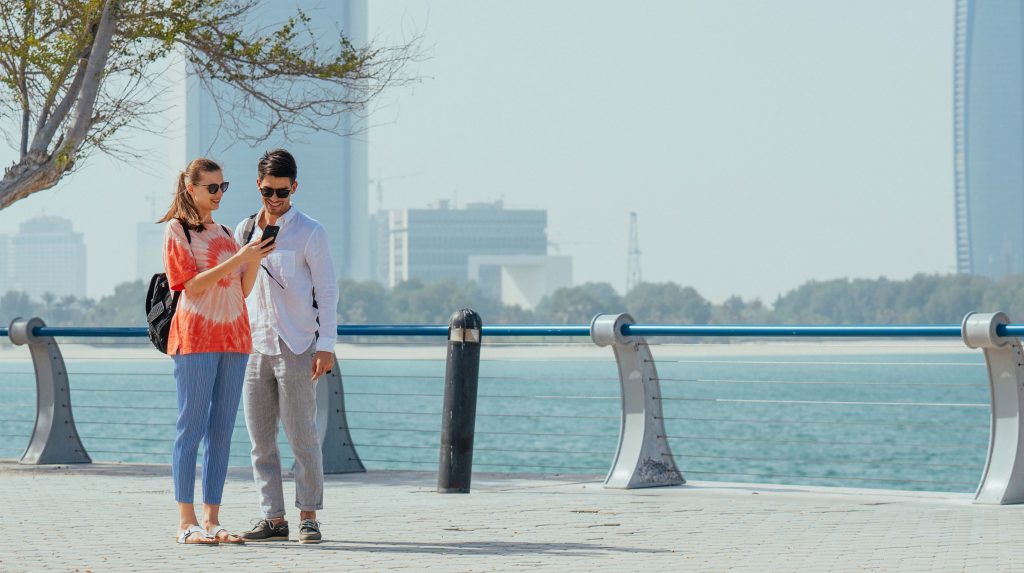Abu Dhabi is a global city with deep cultural roots, and visitors are expected to align with local norms. Modest dressing in public areas isn’t just a rule—it’s part of a social fabric that values respect. Avoid tight, transparent, or overly revealing clothing in malls, mosques, and government spaces. While no one will force you to wear traditional attire, showing that you’ve made an effort earns appreciation and makes everyday interactions more pleasant.
Weekend starts on Saturday, not Friday
One detail that often confuses first-time visitors is the weekend schedule. In Abu Dhabi, the official weekend is Saturday and Sunday. Fridays are still significant culturally, especially due to Jumu’ah prayers, which affect operating hours in the late morning and early afternoon. Planning your activities around this helps you avoid arriving at a closed door. For museums, cafes, or small businesses, it’s safer to call ahead or check their schedule online if your visit overlaps with Friday.
Taxis are reliable but not always the cheapest option
Public transportation is growing, but most tourists rely on taxis or ride-hailing apps like Careem. Taxis are safe, metered, and widely available, even at night. However, for short trips, especially during traffic, they can add up. Consider booking your accommodation near a central area like Corniche, Yas Island, or Al Maryah so you can walk or use free shuttle services from malls and hotels. Abu Dhabi’s layout rewards those who plan their routes, especially in high temperatures.
Stay hydrated and protect yourself from the sun
Even in the cooler months, Abu Dhabi’s sun can be deceptively strong. Always carry a reusable water bottle—many public spaces and hotels offer refill stations. Sunscreen, sunglasses, and a hat are essential, especially if you’re exploring outdoor sites like Qasr Al Watan or the Heritage Village. Heat exhaustion can sneak up on you, particularly after long flights or during desert excursions. Hydration isn’t optional—it’s your passport to staying energized throughout your trip.
Currency exchange is straightforward, but don’t rely only on cash
The UAE dirham (AED) is the local currency, and exchange counters are found at malls, airports, and banks. That said, credit and debit cards are accepted almost everywhere, from taxis to street vendors. Digital payments like Apple Pay or Google Pay are also widely supported. It’s smart to keep a small amount of cash for tips, local markets, or emergencies, but you won’t need large sums of physical currency during your stay.

Alcohol is available, but there are rules
Non-Muslims can drink alcohol in licensed venues such as hotel bars, clubs, or upscale restaurants. Drinking in public spaces or being intoxicated outside licensed venues is illegal. It’s a controlled freedom—respected, but not abused. Many tourists mistakenly assume they can carry drinks to their hotel room or sip wine in a park. To avoid trouble, keep your alcohol consumption within regulated spaces and always carry ID if you’re visiting licensed venues.
Plan mosque and cultural visits with dress code in mind
Sites like Sheikh Zayed Grand Mosque are architectural highlights, but they have strict dress requirements. Women must wear loose-fitting clothing that covers the arms and legs and a headscarf. Men should wear long trousers and avoid sleeveless tops. Some mosques offer free abayas and scarves at the entrance, but bringing your own can save time and ensure you’re allowed in. Respectful attire is as much about inclusion as it is about rules.
Book desert tours and cultural experiences in advance
If dune bashing, camel riding, or attending a falcon show is on your list, book early. Many quality experiences are fully reserved days in advance, especially during peak travel seasons. Opt for operators with insurance, licensed guides, and strong safety records. A well-planned tour usually includes transfers, meals, and traditional entertainment. Checking reviews and confirming what’s included will prevent disappointment later.
Carry identification at all times
While you won’t be stopped randomly, it’s required by law to carry identification. A photocopy of your passport and visa page or Emirates ID (if you’re a resident) is sufficient for most scenarios. Hotels may also ask for identification at check-in or when making certain bookings. Keep a digital backup on your phone, but don’t leave your original documents unattended in public places.
Get a tourist SIM or eSIM upon arrival
Communication is easier and cheaper with a local SIM card. Etisalat and du have kiosks at Abu Dhabi International Airport and major malls. Tourist packages include data, local minutes, and sometimes international calls. If your phone supports eSIM, activation is fast and doesn’t require switching physical cards. Having a UAE number also helps with local app access, like booking taxis or restaurant reservations.
This guide was prepared by www.few.ae team, using verified travel guidance, local insights, and up-to-date information for first-time visitors.
